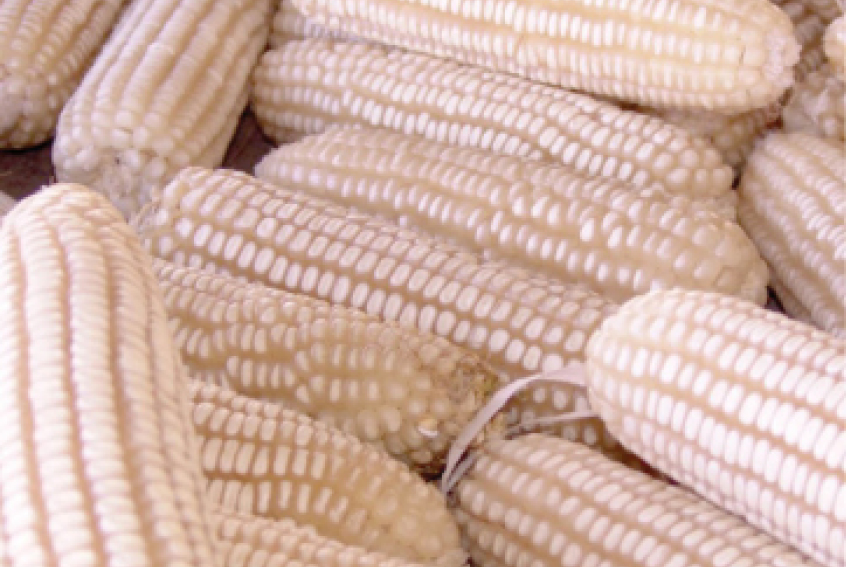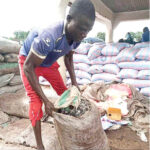Since the challenges of COVID-19, Nigeria has continued to grapple with the problem of food availability which has forced prices of major grains beyond the reach of many citizens.
Grains like maize and wheat, along with others which are also the lifelines of livestock feeds and household consumables, have continued to cost more, thereby triggering a crisis in the industries due to high prices.
Many poultry farms were forced to close as a result of the cost crisis, which also caused millions of Nigerian farmers to become overwhelmed and lose their employment, as the cost of chicken and eggs shot beyond the reach of many people.
With a growing population projected to hit 450 million by 2050, experts have advised the federal government to intensify effort in the production of major grains and cassava.
- Ibadan explosion: Olubadan, Soun, other monarchs back action against illegal miners
- Libel: Court adjourns Atiku’s suit against Buhari’s ex-aide to Mar 25
The Agricultural Research Council of Nigeria (ARCN), the coordinating body of all research institutes and federal colleges of agriculture, has advised the federal government on sustainable measures to ensure that Nigerians have adequate and cheap food on their tables.
The executive secretary of the council, Professor Garba Sharubutu, while speaking with Daily Trust in Abuja said the federal government at this point must pay close attention to what he calls “quick maturing crops,” as a solution to the lingering food crisis.
“Our advice to the government is to concentrate on quick maturing crops. What do we mean by quick maturing crops? We mean rice, we mean yam, we mean cassava, we mean wheat, we mean guinea corn, millet. These are what we call the quick maturing crops.
“But our advice also entails the fact that other products or other commodities should not be neglected. We cannot neglect the cash crops because of the need to diversify. And if you look at the mandate of Mr President and his priority list, he mentioned food security as number one,” Sharubutu said.
Professor Sharubutu said crops like rice, maize, millet, sorghum and wheat, which take an average of just three months to mature, have huge potential to eliminate hunger and ensure availability within a very short period.
With more value chain activities growing along these crops, it will ensure stability in prices and control food inflation, which is now around 35 per cent, the highest in decades.
However, the minister of Agriculture and Food Security, Sen. Abubakar Kyari, had said the federal government was intensifying effort in the production of these grains through its wet season programme.
But the ambitious 1.2 million metric tons of wheat target is already marred by cases of round-tripping among ‘farmers’, forcing the minister to look for a more scientific approach to the second round which focuses on maize, rice and cassava.
We’ll never get extension right unless…
Since the 1980s, extension services, which are essential to agricultural productivity, have collapsed across the states as attention shifted to oil revenue.
Professor Sharubutu explained why it will be difficult to get extension service delivery right in Nigeria.
“We will never, ever get it right in extension until when we are able to carry the local and state governments along.
“Extension, and agriculture in general, is on the concurrent list of the Constitution of the Federal Republic of Nigeria; and if any person wants to deal with extension in the states, the state government will stand up and say, hey, you are entering into our territory.
Despite the fact that Nigeria has an institute that is dedicated to the subject matter of extension and the federal government has also established all forms of programmes, including donor funded programmes like Fadama, extension service remains a challenge in the sector.
The ARCN boss cited the West African agricultural productivity programme as one of the programmes that succeeded in extension service delivery, which sadly could not be sustained.
“We establish what we call adopted villages. We establish what we call adopted schools. We have established outreach centres. Now these outreach centres are meant to improve the contact and outreach.
“What happened with the failure of this programme is, number one, funding cannot be continuous. It has to stop. And it is expected that the state and local governments should have been able to take it up to that level. We never saw that.
“The second thing is, with this programme, the expectation there is that farmers will be able to be built up in such a way that they will now begin to obtain their seeds. What do they do? They collect their seed, they plant it. When they harvest, they sell all the produce and they are expecting that you to continue to supply seeds for them. It won’t work unless we want to deceive ourselves.
“Let the federal government augment what is being done. If the word is augmentation, I can tell you that things will go well. But if it is a question of we fold our arms and we wait for seed to be provided to us, that’s not it.
“Thirdly, and most importantly, those mega farmers are expected to have an extension of their arms. For example, I farm on a land and I have my neighbours who farm crops that are not improved, seeds that are not improved.
“It is my responsibility to make sure that if I want to maintain good harvest, I should be able to assist those that are farming around me because there is one thing scientists call pollination. Wind can blow the pollen grains from one farm to the other and you have a mixture and so it decreases your productivity.
“So we want to call on those of us that are well to do, especially those that are planting foundation seeds, to make sure that we extend our arms and also help. If you control weeds on your neighbour’s farm, you are invariably controlling your own. If you control insect pests on your neighbour’s farm, you are eventually also controlling those on your farm,” Professor Sharubutu advised.

 Join Daily Trust WhatsApp Community For Quick Access To News and Happenings Around You.
Join Daily Trust WhatsApp Community For Quick Access To News and Happenings Around You.


